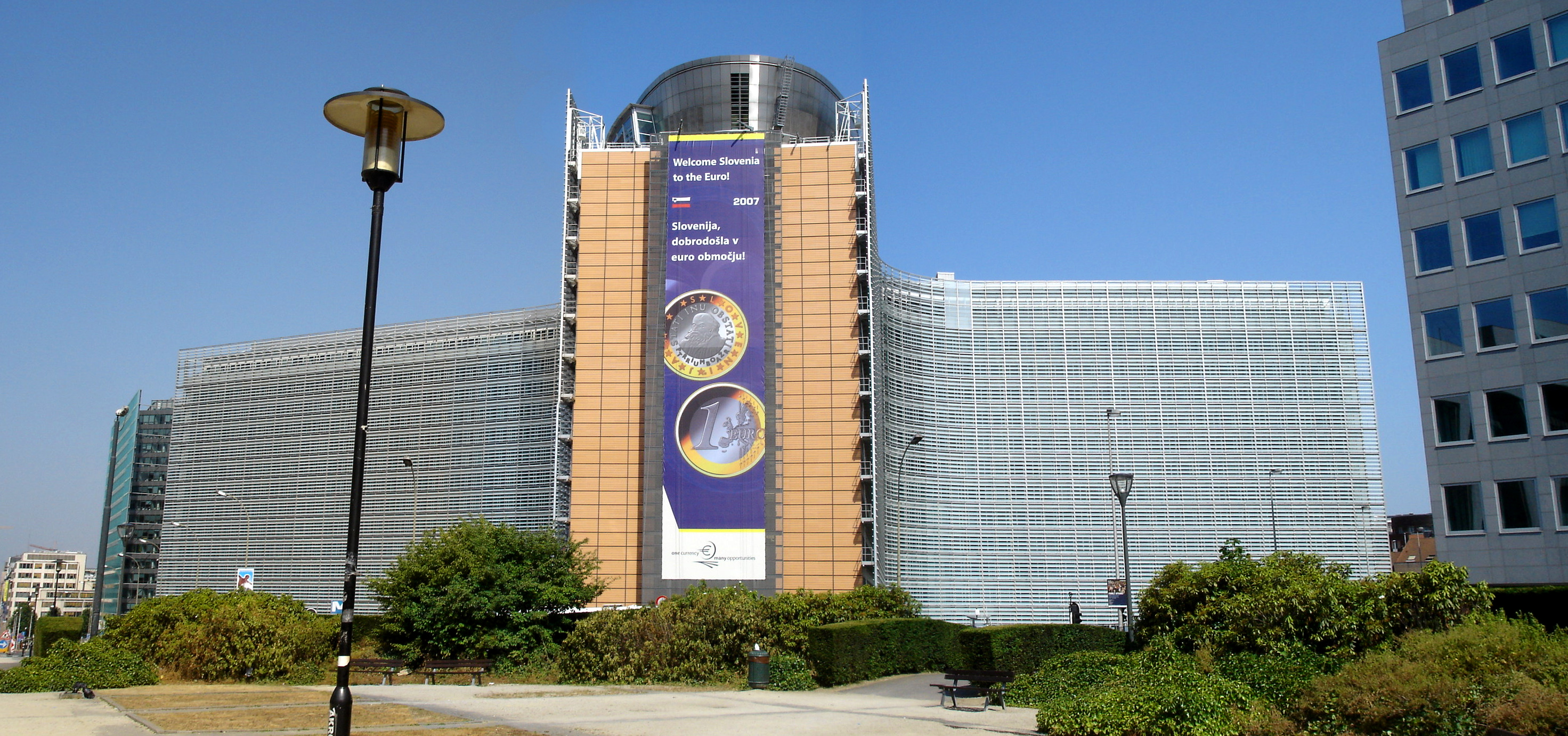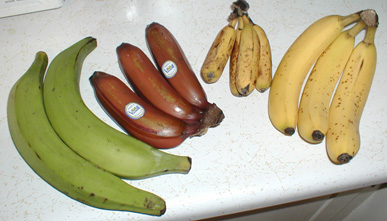|
United Brands Company V Commission Of The European Communities
''United Brands v Commission'' (1976Case 27/76 is an EU competition legal case concerning abuse of a dominant position in a relevant product market. The case involved the infamous "green banana clause". It is one of the most famous cases in European competition law, which seeks to ban cartels, collusion and other anti-competitive practices, and to ban abuse of dominant market positions. Facts United Brands Company (UBC) was the main supplier of bananas in Europe, using mainly the ''Chiquita'' brand. UBC forbade its distributors/ripeners to sell bananas that UBC did not supply. Also, UBC fixed pricing each week; charging a higher price in different Member States, and imposed unfair prices upon customers in Belgo-Luxembourg Economic Union, Denmark, The Netherlands and Germany. The Commission viewed United Brands' action as a breach of Article 86 of the Treaty of Rome (now Art 102 of the TFEU). Article 86 prohibits "abuse of a dominant position" of a relevant market. The case was ... [...More Info...] [...Related Items...] OR: [Wikipedia] [Google] [Baidu] |
EU Competition Law
European competition law is the competition law in use within the European Union. It promotes the maintenance of competition within the European Single Market by regulating anti-competitive conduct by companies to ensure that they do not create cartels and monopolies that would damage the interests of society. European competition law today derives mostly from articles 101 to 109 of the Treaty on the Functioning of the European Union (TFEU), as well as a series of Regulations and Directives. Four main policy areas include: *Cartels, or control of collusion and other anti-competitive practices, under article 101 TFEU. *Market dominance, or preventing the abuse of firms' dominant market positions under article 102 TFEU. *Mergers, control of proposed mergers, acquisitions and joint ventures involving companies that have a certain, defined amount of turnover in the EU, according to the European Union merger law. *State aid, control of direct and indirect aid given by Member St ... [...More Info...] [...Related Items...] OR: [Wikipedia] [Google] [Baidu] |
Relevant Market
In competition law, a relevant market is a market in which a particular product or service is sold. It is the intersection of a relevant product market and a relevant geographic market. The European Commission defines a relevant market and its product and geographic components as follows: #A relevant product market comprises all those products and/or services which are regarded as interchangeable or substitutable by the consumer by reason of the products' characteristics, their prices and their intended use; #A relevant geographic market comprises the area in which the firms concerned are involved in the supply of products or services and in which the conditions of competition are sufficiently homogeneous. Definition and use The notion of relevant market is used in order to identify the products and undertakings which are directly competing in a business. Therefore, the relevant market is the market where the competition takes place. The enforcement of the provisions of competition ... [...More Info...] [...Related Items...] OR: [Wikipedia] [Google] [Baidu] |
Cartels
A cartel is a group of independent market participants who collude with each other in order to improve their profits and dominate the market. Cartels are usually associations in the same sphere of business, and thus an alliance of rivals. Most jurisdictions consider it anti-competitive behavior and have outlawed such practices. Cartel behavior includes price fixing, bid rigging, and reductions in output. The doctrine in economics that analyzes cartels is cartel theory. Cartels are distinguished from other forms of collusion or anti-competitive organization such as corporate mergers. Etymology The word ''cartel'' comes from the Italian word '' cartello'', which means a "leaf of paper" or "placard", and is itself derived from the Latin ''charta'' meaning "card". The Italian word became ''cartel'' in Middle French, which was borrowed into English. In English, the word was originally used for a written agreement between warring nations to regulate the treatment and exchange of ... [...More Info...] [...Related Items...] OR: [Wikipedia] [Google] [Baidu] |
United Brands Company
Chiquita Brands International Sàrl (), formerly known as Chiquita Brands International Inc. and United Fruit Co., is a Swiss-domiciled American producer and distributor of bananas and other produce. The company operates under a number of subsidiary brand names, including the flagship Chiquita brand and Fresh Express salads. Chiquita is the leading distributor of bananas in the United States. Chiquita is the successor to the United Fruit Company. It was formerly controlled by American businessman Carl H. Lindner, Jr., whose majority ownership of the company ended when Chiquita Brands International exited a prepackaged Chapter 11 bankruptcy on 19 March 2002. In 2003, the company acquired the German produce distribution company, Atlanta AG. Fresh Express salads was purchased from Performance Food Group in 2005. Chiquita's former headquarters were located in Charlotte, North Carolina. On 10 March 2014, Chiquita Brands International Inc. and Fyffes plc announced that the ... [...More Info...] [...Related Items...] OR: [Wikipedia] [Google] [Baidu] |
Banana
A banana is an elongated, edible fruit – botanically a berry – produced by several kinds of large herbaceous flowering plants in the genus ''Musa''. In some countries, bananas used for cooking may be called "plantains", distinguishing them from dessert bananas. The fruit is variable in size, color, and firmness, but is usually elongated and curved, with soft flesh rich in starch covered with a rind, which may be green, yellow, red, purple, or brown when ripe. The fruits grow upward in clusters near the top of the plant. Almost all modern edible seedless ( parthenocarp) bananas come from two wild species – ''Musa acuminata'' and ''Musa balbisiana''. The scientific names of most cultivated bananas are ''Musa acuminata'', ''Musa balbisiana'', and ''Musa'' × ''paradisiaca'' for the hybrid ''Musa acuminata'' × ''M. balbisiana'', depending on their genomic constitution. The old scientific name for this hybrid, ''Musa sapientum'', is no longer used. ''Musa ... [...More Info...] [...Related Items...] OR: [Wikipedia] [Google] [Baidu] |
Chiquita Brands International
Chiquita Brands International Sàrl (), formerly known as Chiquita Brands International Inc. and United Fruit Co., is a Swiss-domiciled American producer and distributor of banana A banana is an elongated, edible fruit – botanically a berry – produced by several kinds of large herbaceous flowering plants in the genus ''Musa''. In some countries, bananas used for cooking may be called "plantains", distinguis ...s and other produce. The company operates under a number of subsidiary brand names, including the flagship Chiquita brand and Fresh Express salads. Chiquita is the leading distributor of bananas in the United States. Chiquita is the successor to the United Fruit Company. It was formerly controlled by American businessman Carl Lindner, Jr., Carl H. Lindner, Jr., whose majority ownership of the company ended when Chiquita Brands International exited a prepackaged Chapter 11 bankruptcy on 19 March 2002. In 2003, the company acquired the German produce ... [...More Info...] [...Related Items...] OR: [Wikipedia] [Google] [Baidu] |
Treaty Of Rome
The Treaty of Rome, or EEC Treaty (officially the Treaty establishing the European Economic Community), brought about the creation of the European Economic Community (EEC), the best known of the European Communities (EC). The treaty was signed on 25 March 1957 by Belgium, France, Italy, Luxembourg, the Netherlands and West Germany, and it came into force on 1 January 1958. Originally the "Treaty establishing the European Economic Community", and now continuing under the name "Treaty on the Functioning of the European Union", it remains one of the two most important treaties in what is now the European Union (EU). The treaty proposed the progressive reduction of customs duties and the establishment of a customs union. It proposed to create a single market for goods, labour, services, and capital across member states. It also proposed the creation of a Common Agriculture Policy, a Common Transport Policy and a European Social Fund and established the European Commission. Th ... [...More Info...] [...Related Items...] OR: [Wikipedia] [Google] [Baidu] |
TFEU
The Treaty on the Functioning of the European Union (TFEU) is one of two treaties forming the constitutional basis of the European Union (EU), the other being the Treaty on European Union (TEU). It was previously known as the Treaty Establishing the European Community (TEC). The Treaty originated as the Treaty of Rome (fully the ''Treaty establishing the European Economic Community''), which brought about the creation of the European Economic Community (EEC), the best-known of the European Communities (EC). It was signed on 25 March 1957 by Belgium, France, Italy, Luxembourg, the Netherlands and West Germany and came into force on 1 January 1958. It remains one of the two most important treaties in the modern-day European Union (EU). Its name has been amended twice since 1957. The Maastricht Treaty of 1992 removed the word "economic" from the Treaty of Rome's official title and, in 2009, the Treaty of Lisbon renamed it the "Treaty on the Functioning of the European Union". F ... [...More Info...] [...Related Items...] OR: [Wikipedia] [Google] [Baidu] |
Preliminary Ruling
A preliminary ruling is a decision of the European Court of Justice (ECJ) on the interpretation of European Union law that is given in response to a request (preliminary reference) from a court or a tribunal of a member state. A preliminary ruling is a final determination of European Union law, with no scope for appeal. The ECJ hands down its decision to the referring court, which is then obliged to implement the ruling. Preliminary rulings are issued by the ECJ. The Treaty of Lisbon provides that jurisdiction may be delegated to the General Court, but that provision has yet to be put into effect. If, as in '' Factortame'', the ECJ holds that a member state's legislation conflicts with EU law, the member state is required to "disapply" such law, but the ECJ may not amend the member state's legislation itself. Preliminary rulings make up the bulk of business in the Court of Justice of the European Union since few persons have ''locus standi'' to litigate in the Luxembourg court. ... [...More Info...] [...Related Items...] OR: [Wikipedia] [Google] [Baidu] |
European Court Of Justice
The European Court of Justice (ECJ, french: Cour de Justice européenne), formally just the Court of Justice, is the supreme court of the European Union in matters of European Union law. As a part of the Court of Justice of the European Union, it is tasked with interpreting EU law and ensuring its uniform application across all EU member states under Article 263 of the Treaty of the Functioning of the European Union (TFEU). The Court was established in 1952, and is based in Luxembourg. It is composed of one judge per member state – currently – although it normally hears cases in panels of three, five or fifteen judges. The Court has been led by president Koen Lenaerts since 2015. The ECJ is the highest court of the European Union in matters of Union law, but not national law. It is not possible to appeal against the decisions of national courts in the ECJ, but rather national courts refer questions of EU law to the ECJ. However, it is ultimately for the national court ... [...More Info...] [...Related Items...] OR: [Wikipedia] [Google] [Baidu] |
Cross Elasticity Of Demand
In economics, the cross elasticity of demand or cross-price elasticity of demand measures the percentage change of the quantity demanded for a good to the percentage change in the price of another good, ceteris paribus. In real life, the quantity demanded of good is dependent on not only its own price (Price elasticity of demand) but also the price of other "related" products. \text = \frac The concept is used to identify the relationship between two goods, they can be: * Complements * Substitutes * Unrelated A negative cross elasticity denotes two products that are complements, while a positive cross elasticity denotes two products are substitutes. If products A and B are complements, an increase in the price of B leads to a decrease in the quantity demanded for A, as A is used in conjunction with B. Equivalently, if the price of product B decreases, the demand curve for product A shifts to the right reflecting an increase in A's demand, resulting in a ''negative'' value for the ... [...More Info...] [...Related Items...] OR: [Wikipedia] [Google] [Baidu] |
Marcel Van Meerhaeghe
Marcel Alfons Gilbert van Meerhaeghe (Wetteren, 12 April 1921 – Ghent, 22 March 2014) was a Belgian economist, professor, publicist and columnist. Marcel van Meerhaeghe was Professor of International Economic Relations at the State University of Ghent. In his long and distinguished career, Professor van Meerhaeghe gave important contributions to economics and also to the interpretation of economic events. His rare ability to combine theoretical and practical analyses made particularly valuable his scientific works. Life and career 1939–1987 Initially Marcel van Meerhaeghe thought about a military career. In 1939 he passed the entrance exams for the École Royale Militaire (ERM). After the campaign of 1940 followed about seven months as a prisoner of war in a German camp (an intervention of King Leopold III resulted in the release of the ERM-students). At Ghent University (Belgium) van Meerhaeghe obtained a master's degree in Economic Sciences in 1944 (first diet: July) ... [...More Info...] [...Related Items...] OR: [Wikipedia] [Google] [Baidu] |





